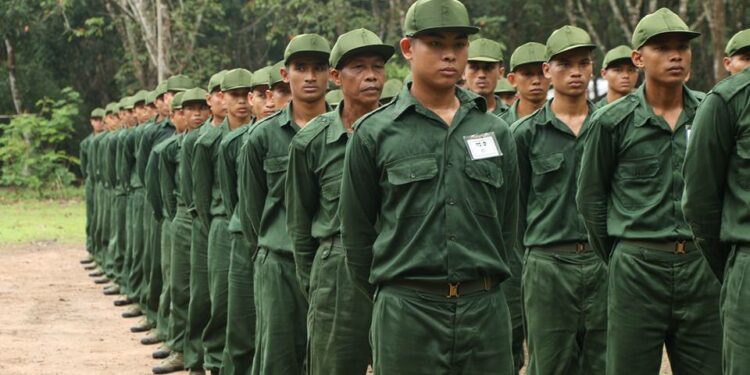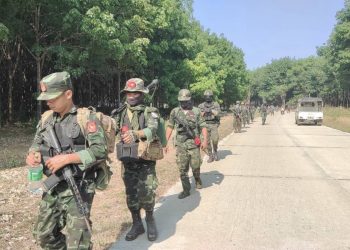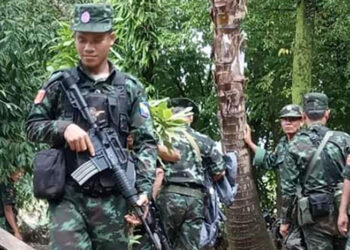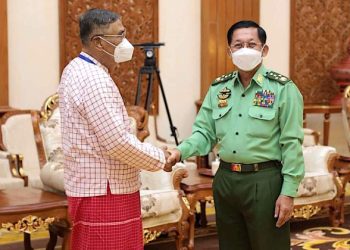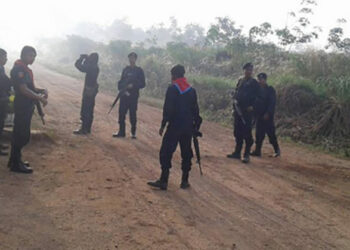The Mon State Government has delivered a formal warning to the New Mon State Party (NMSP), an ethnic Mon armed group, demanding that it stop taxing locals, acting as law enforcement, cracking down on illegal drugs, and recruiting locals in “government-controlled” areas.
In a meeting on Friday involving the Mon State Chief Minister and the military-appointed Minister of Security and Border Affairs, along with senior NMSP members, the ethnic armed group was accused of violating the 2012 bilateral ceasefire agreement, and told that it must “respect the rule of law,” according to NMSP spokesman Nai Win Hla, who was present.
“We responded that we would stop these actions only if the government found political solutions,” he said, maintaining that the NMSP was moved to enforce law and order locally and stamp out drugs because the Burmese government had failed in its responsibility to do so.
According to Nai Win Hla, the border affairs minister Col Win Naing Oo accused the NMSP of “disrespecting the government.” Nai Win Hla said the group “did not respond” to this accusation.
The Mon State government had sent 28 letters in total to the NMSP since January this year, alleging violations of the bilateral ceasefire. The border affairs minister brought up two such cases at the meeting: the killing of a civilian during a raid on an illegal drug ring in Kawkareik Township of Karen State, and the arrest of a man accused of forcing a woman to marry him in Mudon Township of Mon State (after the Burmese police had failed to take action, according to local Mon sources).
The NMSP, whose armed wing is called the Mon National Liberation Army, is active across areas of southeastern Burma, and is a member of the influential ethnic armed group alliance the United Nationalities Federal Council.
Although the NMSP reached a bilateral ceasefire agreement with Burmese government in 2012, it chose not to sign the Nationwide Ceasefire Agreement (NCA) last year—after which tension between the MNSP and the Burma Army has grown, according to NMSP leaders.
“We have to keep tight control of our soldiers, to ensure our troops’ movements stay within the boundaries [agreed under the bilateral ceasefire],” said Nai Hong Sar, vice chairman of the NMSP, who said the group “did not want to have problems” with the Burmese Army and the government.
“They are trying to create problems with us because we refused to sign the NCA,” he claimed.


